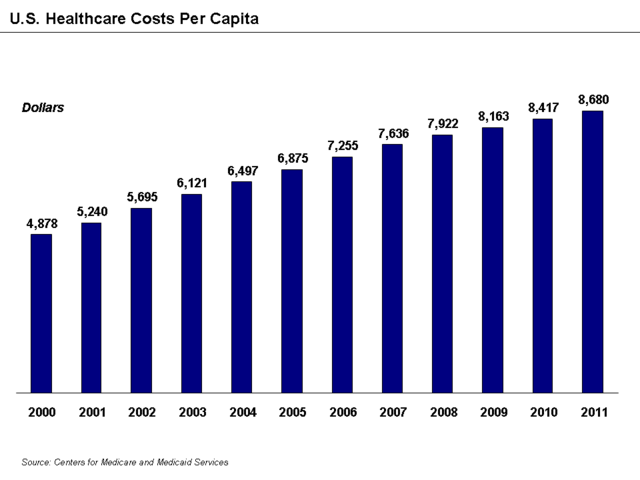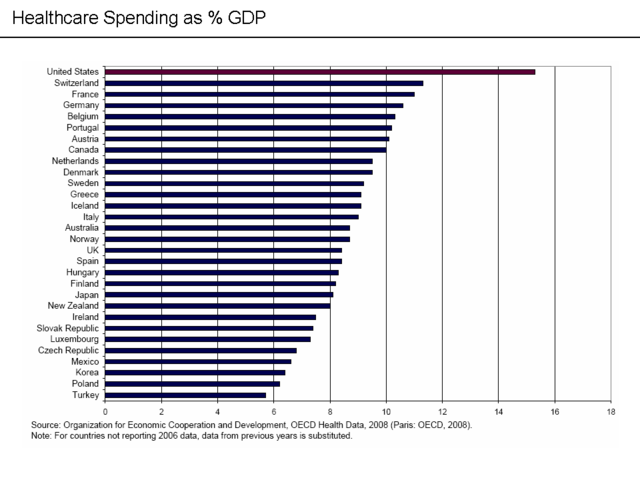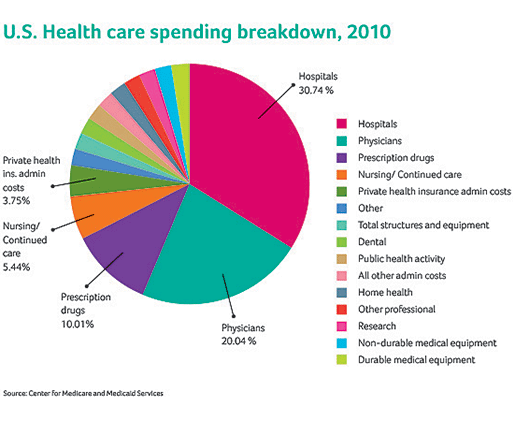The Cost of Medicare
In the United States our health care is by far the most expensive in the world. Total health care spending in the United states reached $2.6 trillion in 2010 and consumes more than one out of every six dollars that Americans earn. And the cost is still increasing more then inflation. "Right now, it's projected that premiums for families with health insurance... will almost certainly double over the next decade, just as they doubled over the past decade. The financial burden has damaged the global competitiveness of American businesses and bankrupted millions of families, even those with insurance. It’s also devouring our government." President Barack Obama said at the Health Care Summit.


Spending Breakdown
Many people think that insurance companies and rising premiums are the main driver of increased of health care costs. But they only account for a minuscule 3.75%. Of total expenses half goes towards the cost of medical care provided by hospitals and physicians. When compared to other high-income, economically developed countries hospital spending in the United States is more then twice as high.
The Solution
Free Markets cannot function well without price transparency. The United States healthcare industry is almost completely opaque. Increased transparency, with a focus on quality, will lead to greater benefit from the healthcare market. Purchasers cannot make informed choices without being able to make a comparison on the basis of either price of Medicare or the quality. It is helpful when consumers can look up what is charged and what they are and their insurance is paying for each service.
Hospital Inpatient Procedure Costs
The Centers for Medicare and Medicaid Services (CMS) have released information showing hospitals charges and Medicare payments for the 100 most common Medicare inpatient procedures. These numbers show a tremendous, unexplained disparity in cost of services between hospitals. Why are hospitals setting such divergent charges? One theory is Medicare providers cost-shift and price-shift. Uncompensated care can be made up for from unpaid charges by increasing prices charged to other patients.
